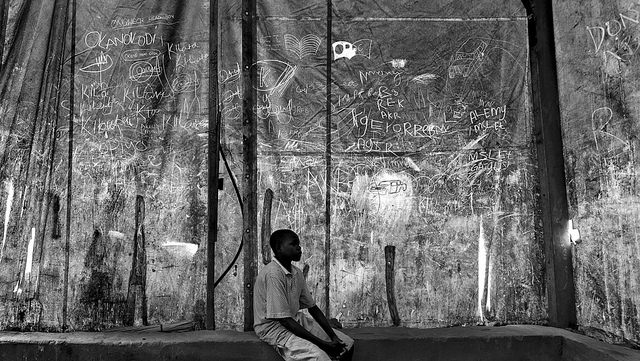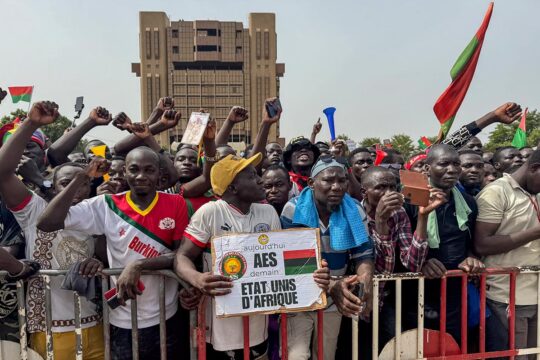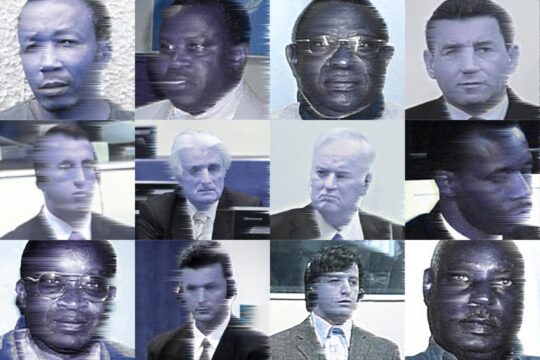In a recent article, JusticeInfo editorial advisor Pierre Hazan looked at the African assault on the International Criminal Court and what it means for the ICC’s legitimacy. In a response published on this website, Gilad Ben-Nun and Hannahmariam Seyoum disagreed with Hazan’s analysis on the roots of the problem and on the independence of the Court. Here we publish Hazan’s response to their Opinion.
Gilad Ben-Nun, Hannahmariam Seyoum and I all agree that the assault on the ICC by African governments has thrown the Court into crisis. However, we differ on the reasons for this crisis and the way to tackle it.
-
Gilad Ben-Nun and Hannahmariam Seyoum attribute the ICC’s perceived lack of legitimacy in Africa to its “proprio motu” provision, which allows the Prosecutor to open cases on his or her own initiative. Let us note first of all that Uganda, the Democratic Republic of Congo (DRC), Central African Republic (CAR), Côte d’Ivoire and Mali all asked the ICC to intervene on their territory, it was not the Prosecutor that took the first step. The only exception to date is Kenya, where the Prosecutor took the initiative to examine the situation and launch cases. But even here, we should remember that the Prosecutor must get authorization from an ICC Pre-Trial Chamber, on the basis of serious indications that international crimes have been committed. Even more important is the fact that the Prosecutor can only act on his or her own initiative in a country such as Kenya that has ratified the ICC Statutes and therefore accepted the jurisdiction of the Court. Whether one agrees or disagrees with these Rules – and contrary to what Ben Nun and Seyoum suggest --, the Prosecutor remains subject to the sovereignty of the member States.
-
The main reason for the weakness of the Court is well known. To be efficient, it needs the cooperation of States, and this depends on how they read their national interests. Whether it be to draw up an indictment, investigate on the ground or arrest suspects, cooperation from States is essential. This may not be a satisfactory situation, but it was the decision of the States to create an international Court whilst at the same time limiting its capacity for action. Also – and contrary to what Gilad Ben Nun and Hannahmariam Seyoum say – we no longer live in the world of Edward Carr, where State sovereignty is the Alpha and Omega of international relations. We live in a time where the sovereignty of States is no longer absolute. The concept of crimes against humanity, NGOs working without borders, the responsibility to protect (however inefficient it has been in Syria today) and the principle of universal jurisdiction defy the words of Nazi propaganda chief Joseph Goebbels, who told the League of Nations in Geneva in 1933 that “one is the master in one’s own home. We will deal with our Communists, Socialists and Jews the way we see fit”. This “sovereign power to kill”, as René Cassin puts it, is no longer acceptable today, if it has ever been. This new norm has been set through the creation of the ICC. However deeply unsatisfactory this Court may be today, however much one may criticize the Prosecutor’s strategy, the ICC is, in an interdependent world, slowly and painfully helping to build international justice alongside many other mechanisms such as Truth and Reconciliation Commissions. In so doing, this move against impunity reflects the aspirations of civil society and millions of NGOs worldwide, who pressed for the birth of international criminal justice.
-
And finally, what do Gilad Ben-Nun and Hannahmariam Seyoum propose? They seem to want an International Criminal Court that is subject to the will of the UN Security Council, i.e. the biggest world powers. This was acceptable in 1993 and 1994 in specific emergency situations when the UN set up its first ever International Criminal Tribunals, for the crimes committed in former Yugoslavia and in Rwanda. But this process is less acceptable today, because it is not democratic enough. Let’s imagine what Ben-Nun and Seyoum advocate for? A Court with zero independence. The ICC would become the judicial arm of the Security Council, its political master. Do we really want this to happen? This is what the Bush administration fought for in 1998 when the Rome Statute was drafted, and certainly what Moscow and Beijing would like today, but not the rest of the planet. UN Security Council members would thus ensure that they themselves would not be prosecuted for abuses against civilians. And then what would be the Court’s legitimacy in the world? The African governments that today complain about the ICC would be marginalized more than ever. Their voices would no longer be heard, because none of them has a veto in the UN Security Council. The hundreds of African NGOs and the millions of people who fought for an independent international Court would see their dreams of justice killed forever.






